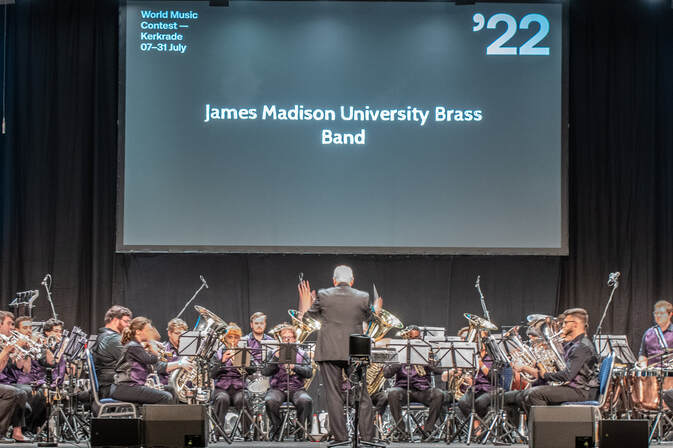 This summer, the James Madison University Brass Band traveled to the city of Kerkrade in the Netherlands to compete in the 19th World Music Contest. The group was invited to represent the United States of America in the Championship Division of the international contest, competing with five of the most elite bands in the world. These bands include: Brass Band Willebroek from Belgium, Brass Band Schoonhoven from the Netherlands, Valaisia Brass Band from Switzerland, Black Dyke Band from England, and Hauts-de-France Brass Band from France. The JMU Brass band is a collegiate group consisting solely of student members. Being a collegiate group poses challenges that other competitors do not face as professional ensembles. Notably, our ever evolving performer roster and the turnover that the semester audition based ensemble experiences proves challenging for long term retention and growth. Each year, our veteran members graduate and new members take their place, bringing with them a clean slate and working diligently to maintain the excellence of their predecessors. Upon accepting the invitation to attend the contest, the band, under the direction of Kevin Stees, assembled nearly every weekend for rehearsals for six weeks before coming together for a daily rehearsal camp in the week prior to traveling. We spent much time rehearsing, recording, and carefully reviewing each performance so that we could bring with us the best possible product as representatives of JMU and of the United States. On July 4th, 2022, we flew from Washington, D.C. to Amsterdam, NL on our first leg of the once in a lifetime trip. From Amsterdam we flew to Dusseldorf, DE from which we would travel by charter bus to Kerkrade, NL; However, we encountered an obstacle upon landing in Düsseldorf: three tubas had been lost in transit! With very little information regarding the whereabouts of these instruments, we were forced to leave for Kerkrade and continue with the itinerary as planned. The mystery of the missing tubas proved to be both a low and a high of the trip. We spent each morning rehearsing for the contest at a local community center before spending afternoons sightseeing in the cities of Maastricht, NL, Kerkrade, NL, and Aachen, DE. Each of these rehearsals saw three of our five tuba players buzzing into mouthpieces and singing their parts until the day prior to the performance of the test piece when the tubas were rescued from the basement of the Düsseldorf Airport. The horns were packed into a small taxi and driven the last leg of their journey, making for a highly anticipated reunion, a more well-balanced ensemble, and three very happy students! Highlights of our exploration in the city of Maastricht include shopping, traditional street food, warm baked goods, and a sunny river boat ride to the Belgian border. In Aachen, we followed a guided tour through the city where we had the option of drinking from the Elysen Fountain (Elisenbrunnen), a sulfurous fountain with rumored healing properties. A favorite moment of many of the students was the guided tour of Aachen Cathedral within which the body of Charlemagne lies, alongside many relics rich with religious and historic significance. These experiences combined with fantastic performances in Kerkrade as part of the festivities of the WMC made for an amazing trip full of new sights, sounds, tastes, and smells. On the evening before our first performance, we joined a very passionate and celebratory crowd to watch the opening festivities of the WMC in the Kerkrade town square. Favorite moments in Kerkrade included street performances by local and area groups and a parade of marching bands, some of which saw performers riding bicycles with instruments as large as tubas and bass drums! The main stage, called the Blow! Stage, at the heart of the city, hosted performances by the World Youth Brass Band and other fantastic groups, setting the tone for our own performances in the contest that spanned the following two days. The students were able to attend the performances of several of the other Championship Division bands including Black Dyke Band and Valaisia Brass Band, further inspiring us and energizing us to have a performance representative of our championship status. Our rendition of the test piece, Contest Music by Wilfred Heaton, and of our own choice program left an impression among the audience and the judges, as well as several publications that professionally review and rank performances within the band realm. The publication 4barsrest wrote that JMU, “showcased their emerging top flight credentials under Kevin Stees, as they under-lined their considered set with a reprise of Paul Lovatt-Cooper’s ‘And From the Darkness…’ which was recently used at the North American Brass Band Championships.” Overall, the trip was a great success for all involved and proved to be a truly incredible and unforgettable experience. Nothing makes a band closer than traveling internationally, battling jet lag, searching for missing tubas, and performing on stage with some of the greatest bands in the world.
0 Comments
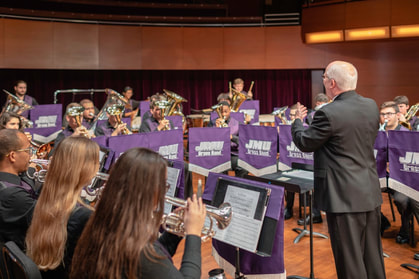 Right before our principal cornet player plays a tuning pitch, there is a sound that signals the band that it’s time to get to work. The sound is keys crashing together and falling onto a surface. At the start of every rehearsal of the James Madison University Brass Band the conductor, Professor Kevin Stees, drops his keys on a stand in front of us that holds a stack of scores. This simple act has significance that radiates to every individual member of the band. The number one Brass Band in the world is the Cory Band. They reside in the U.K., where brass bands originated, and are some of the best musicians internationally. To hear them play is an experience one doesn’t soon forget. Do want to know what is even more special about them? The band is not their full time job. They make time before and/or after work/careers to practice their music and the fundamentals of their instruments. They drop their keys off at the door. They grab their instrument. They get to work. To become a member of the James Madison University Brass Band you have to audition. The beauty of this is that any student, including non-music majors, can have to opportunity to audition and participate. The group is primarily music majors. In fact, many listeners might assume that it is all music majors. For those who know that this is false, they may wonder what it is like to be a non-music major in such a rigorous band. It’s simple: we drop our keys. We get our work done in our regular classes, other extra curricular courses, then make time for an activity we love: playing our instruments and being in brass band. The band rehearses Monday and Wednesday for around an hour. On Fridays we rehearse almost two hours. We aim to practice every day. You have to really love something to put so much time into it. Our love drives our time management and passion to succeed as an individual in the ensemble. Stees makes one thing clear: he is not there to wave a wand at musical monkeys. He is our musical facilitator. As musicians we are trained to read music and the variety of markings that go with it. This does not mean that we always read it perfectly or acknowledge notes or markings all the time. The majority of the time he will have to point things out, like any other conductor. Either way, it is clear that he makes music WITH us. It is not a “Stees vs. the band” mentality, but a “Stees is a member of the band”. Mr. Stees treats everyone in the band equally. He does not segregate us into two groups; people who go to school for music and the others. There is a certain expectation that he holds for everyone. This expectation is well known by every member and we all work hard to meet it. Due to Mr. Stees’s support and skill as an educator (as well as hard work from the members of the band) we usually meet this goal. We: the individuals who want music as their career and those who want it as an avocation. Two of the three non-music majors spent their freshman years as music majors. Being a music major is no easy path. This is a big misconception among non-musicians. Music majors don’t just sit around playing their instruments or singing; there is so much more to it. The work is simply different than other classes on campus. A pre-medicine student might spend two hours working on a lab assignment, while a trumpet performance major would spend those two hours on their instrument. One is practicing an etude they were assigned for that week by their applied teacher while the other is running samples in a centrifuge. There is one major difference between the two people: the future doctor might also have a rehearsal later. I personally remain in two ensembles on campus while working on classes for my degree in health sciences with a health studies concentration (music and pre-medicine minors). These two ensembles are the Marching Royal Dukes and the James Madison University Brass Band. I have been a solo cornet for a year and a half in the brass band, previously holding the positions of repiano, co-principal, and principal in the local, and only youth brass band in Virginia, the Massanutten Youth Brass Band during high school. I am not the only member of the band who stays busy with music on top of our major classes. Our resident business major is our principal tenor horn player of the JMU Brass Band, but plays solo cornet in the Massanutten Brass Band. One of the other tenor horn players, Stephen Poehailos, is a computer science major and is additionally in the JMU Wind Symphony. I asked Stephen comment on being in the JMU BB without pursuing a music degree: “Music making has been a hobby of mine since I started playing horn in 5th grade, and being in this ensemble has allowed me to push that hobby even further by trying something new that I never would have experienced in the places I had grown up. The fact that everyone is here because they want to be encourages me to put my best foot forward and strive to make great musical moments with wonderfully-talented people. Computer Science work can be stressful at times, so being in the brass band has given me the chance to take my mind off of that work, thinking instead about the music I’m making and the people I’m with. This allows me to come back to my work later with a sense of invigoration that I can’t get from other sources.” Everyone wants to be in the band. Nobody is forced to participate. We make a choice. People carry the ideology that you have to be a professional musician to be successful or happy in music. Or maybe you even need a four year conservatory degree from a place like Curtis or Julliard. This is false. Over the course of my one full year of being a music student at James Madison University I learned many valuable musical skills. Skills that would definitely have helped me if I decided to be a music educator, wanted to get a high level degree in performance, or gain crucial knowledge for composition. However, the most important thing that I learned is that you don’t need a degree to tell you to practice. You don’t need a degree to play. You don’t need a degree to get good gigs or be in a world class ensemble. You just need to have the passion to succeed and the work ethic to make it happen. Being a non-music major in brass band is difficult, but also a well thought out choice by the individual members- inherently driven by our passion for music. We are a close-knit group of people that want to be challenged musically, whether that is for our own personal pleasure, career, or both. People in the group will become music educators, doctors, performers, and accountants. That is the beautiful thing about music. We all may have our own musical lines in life, but at the end of the day, harmony will bring us together. Drop your keys. Get to work. Ana Jermstad is a sophomore health sciences major at James Madison University and a member of the JMU Brass Band. 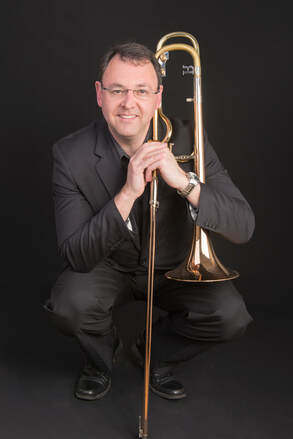 The JMU Brass Band welcomes British trombone sensation Brett Baker on Saturday, January 12, 2019. Baker will be the featured guest artist for Tromblow’in 2019, the 11th annual all-day trombone event hosted by JMU. He will headline the Grand Concert to close out the event, performing a few works from his most recent CD, Contrasts, with the JMU Brass Band. Gordon Langford’s Rhapsody for Trombone was one of the first commissioned works for trombone and brass band, and has been a staple in the repertoire since its premiere in 1975. Baker will also perform two works premiered on his album: Trombango by Stephen Roberts and Jan Van der Roost’s Contrasts. Both pieces explore new harmonic moods in the brass band and create new demands for the trombone soloist. Baker is one of Europe’s leading brass soloists, recording over twenty CD’s of repertoire for trombone and brass band. As an advocate for new music, he has a hand in more than one-hundred commissioned works for trombone. Baker currently holds the position of Principal Trombone with the Black Dyke Band, one of the world’s most highly regarded brass bands. In addition to his prolific performance career, Baker serves as Programme Leader for Musical Arts at the University of Salford. He is also an active freelance clinician and conductor throughout Europe. Baker is a true advocate for the trombone, and has held positions with the British Trombone Society and the International Trombone Association. This marks Brett Baker’s third trip to James Madison University. He previously joined the JMU Brass Band in 2011, in a performance of Johan de Meij’s T-Bone Concerto. Baker was featured with the Brass Band again in 2014, this time at the then Eastern Trombone Workshop (now American Trombone Workshop). Dance Sequence, by Welsh composer Gareth Wood, highlighted a long list of shorter solos for trombone and brass band. The JMU Brass Band is excited to once again make music with Brett Baker. - Kyle Remnant International euphonium virtuoso David Childs, has appeared as soloist with the BBC National Orchestra of Wales, Royal Philharmonic, BBC Concert Orchestra, RTE Concert Orchestra, BBC Philharmonic, Sinfonia Cymru, Welsh Chamber Orchestra and DCINY Symphony; made solo appearances at the Singapore International Festival, Welsh Proms, Harrogate International Festival, Cheltenham Festival, Melbourne International Festival, BBC Proms and New York Festival; performed solo recitals at the Wigmore Hall, Purcell Room and Bridgewater Hall; given Concerto performances at the Concertgebouw, Carnegie Hall, Queen Elizabeth Hall, Symphony Hall, New York’s Lincoln Center and London’s Royal Albert Hall; and regularly records as a solo artist for radio, television and commercial disc.
Having already achieved a great deal as a euphonium soloist David has received many awards in recognition: a Silver Medal from the Worshipful Company of Musicians; a Star Award from the Countess of Munster; the Musicians Benevolent’ Sir Charles Leggett Award; the Welsh Music Guild’s Leo Abse & Cohen Award; the BBC Radio Wales Soloist Award and the Harry Mortimer Award for Outstanding Achievement amongst others. Having studied at both the Royal Northern College of Music and the Royal Welsh College of Music David is now an Associate of the Royal College of Music London; a Professor at both the Royal Welsh College of Music & Drama, and the Birmingham Conservatoire; an Artist for the Buffet Group Besson, Alliance and Reunion Blues; and a Director of Prima Vista Musikk publishing. A proud product of the British brass band movement David has performed with many of the world’s premiere brass bands including Brighouse & Rastrick, Black Dyke and Cory with whom he was principal euphonium for 10 years. He is a founder member of the highly successful brass quartet Eminence Brass and Artistic Director of Wales’ premiere wind orchestra Cardiff Symphonic Winds. David Childs will be presenting a master class at 12:20 to 2:15 on Friday, February 23rd. The masterclass will be held in room 1115 in the Forbes Center for the Performing Arts. The masterclass is free of charge and open to the public. Childs will also be performing as a featured soloist with the JMU Brass Band at 8 PM on the same day. Tickets can be purchased online here or by navigating to the concert page through www.jmu.edu/forbescenter/. 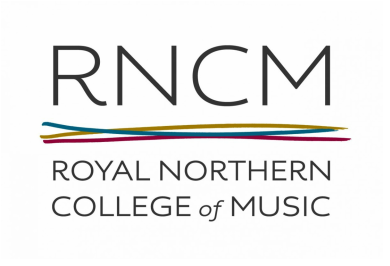 The JMU Brass Band has been invited to perform as a featured ensemble at the 2017 Royal Northern College of Music Brass Band Festival in Manchester, England. The performance will mark the first time a band from the United States has presented a concert at this very prestigious event. In an interview for the October edition of Brass Band World Magazine, founding conductor, Kevin Stees commented: "In the US, the Festival is held in very high esteem. Throughout the years, I've continued to regard it as one of the most important events for brass bands in the world and the (JMU) band has no idea what a monumental experience this will be. The band is in for a life-changing experience. We can't wait!" The concert will focus on American music featuring Stephen Bulla's Images for Brass and a new work by JMU faculty member, Eric Guinivan. Also on the program will be Samuel Barber's Mutations from Bach and Joseph Turrin's Hymn for Diana. Additionally, the band will perform Variations on an Enigma by Philip Sparke and Oliver Waespi's The Raid.
 The JMU Brass Band is excited to host euphonium star, Glenn Van Looy, on their upcoming concert. Glenn will be featured on Philip Sparke's Euphonium Concerto, as well as Devil's Duel (Meechan), Walking on Music (Derongé) and Scherzo-Tarentelle (Wieniawski/arr. Nieuwenhuis). Glenn will also teach a master class during his stay at JMU. JMU Brass Band with Glenn Van Looy Friday, February 26, 2016 8:00 pm Forbes Center for the Performing Arts Concert Hall James Madison University For tickets go to www.jmu.edu/forbescenter/ 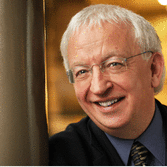 In recognition and celebration of Edward Gregson's 70th birthday year, the JMU Brass Band, along with the Massanutten Brass Band, will be presenting a concert featuring six of the composer's works. Included on the concert will be Gregson's Prelude for An Occassion, Intrada, Partita, and Rococo Variations. Additionally, the JMU Brass Band will feature soprano cornetist, Charlie Frise, in a performance of Richard Eaves' (aka Edward Gregson) Rhapsody for Eb Soprano Cornet. As a finale to an evening of wonderful music, the bands will combine for a performance of the Gregson classic Variations on 'Laudate Dominum'. The Music of Edward Gregson JMU Brass Band Massanutten Brass Band Friday, November 6, 2015 8:00 pm Forbes Center for the Performing Arts James Madison University Principal Cornet, Matt Harper
Soprano Cornet, Charlie Frise Flugel Horn, Dylan Rye Solo Horn, Zach Nicely 1st Baritone, Allie Hunter 1st Trombone, Megan Hendrix Solo Euphonium, Joel Collier Eb Bass, Will Mason Bb Bass, Matt Knopp Every fall James Madison University’s campus is buzzing with the excitement of a new year. At the turn of each semester there is also the anticipation of ensemble auditions for musicians at JMU. Music students find their multiple audition excerpts posted online, which challenge various aspects of the musicians’ abilities. Preparation is key, especially when auditioning for JMU’s Brass Band because it is one of the top ensembles available. Being a part of the brass band requires high levels of technical, lyrical, and overall musical playing. The Brass Band is constantly challenged to ‘bring something to the table,’ by director Kevin Stees. Members are encouraged to work together in order to produce a desired sound and product for listeners.
Matt Harper, the band’s secretary and principal cornet player for the past two year says, “It always seems like the cornet section and the band as a whole gets better every single year I have played with the band! I'm really looking forward to performing with an older and very mature band, especially the cornet section. The repertoire and the expectations become more demanding with time but the band always finds a way to step up and make awesome performances happen. The audition process was a little different this year in that we got two solo pieces - one technical and one lyrical piece - instead of one test piece that we would perform at the first concert. We were given Hungarian Melodies by Vincent Bach – a nice change of pace but still challenging nonetheless – and The Lark in the Clear Air arranged by Gordon Langford. I'm personally really looking forward to my audition and the new opportunities to make music this coming year!” Another music student, Charlie Frise, summarizes his experience preparing for auditions as “a challenge to put out the best product I can for not only Mr. Stees, but also for myself. It is not just the notes and rhythms… I want to move people in some way with the sounds coming from the end of my horn. The correct notes and rhythms are only the first step when preparing for an audition.” This is just the start of an impressive semester for the James Madison University’s Brass Band. |
AuthorJMU Brass Band Archives
August 2022
Categories |
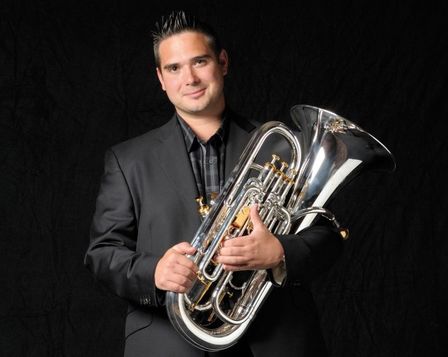
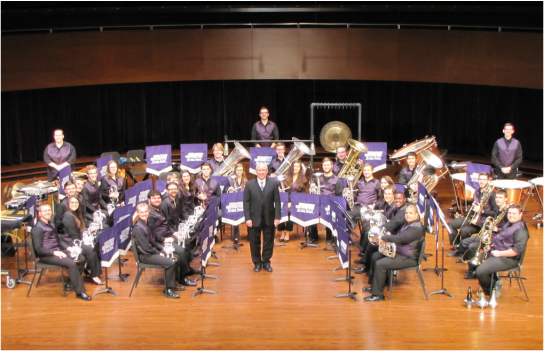
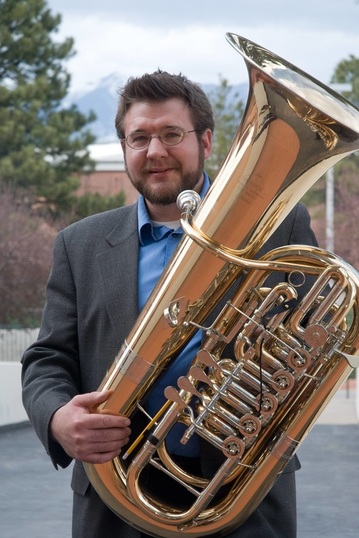
 RSS Feed
RSS Feed
